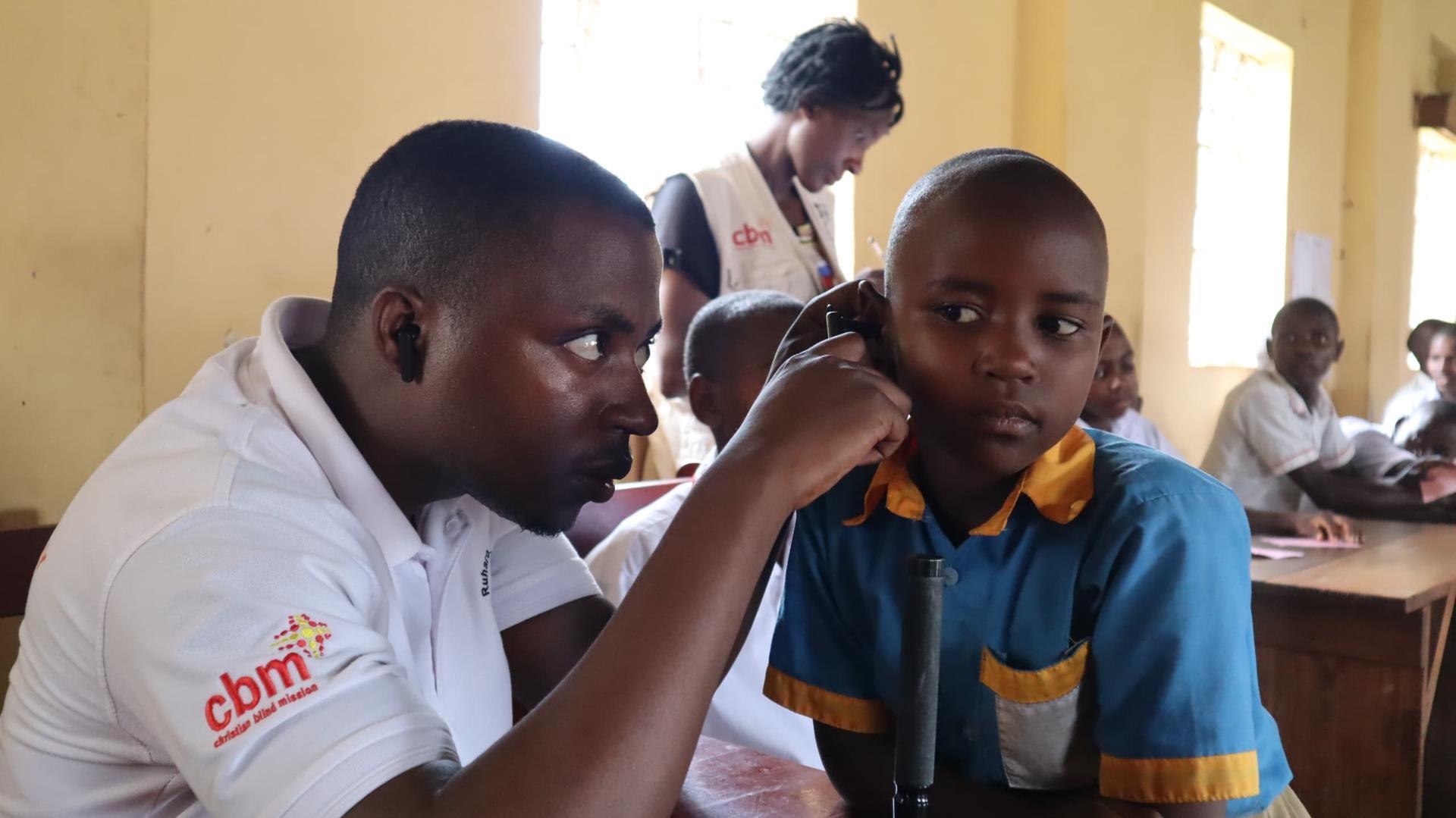Africa-Press – Uganda. In Uganda, children with disabilities remain one of the most excluded groups in the education system. Despite the introduction of Universal Primary Education (UPE) and the development of inclusive education policies, thousands of children with disabilities in the country, especially in rural areas, are still out of school or unable to meaningfully participate in classroom learning.
The challenges are numerous inaccessible school infrastructure, negative societal attitudes, lack of assistive devices, and insufficient teacher training continue to limit access to quality education for learners with disabilities.
To address these gaps, Organised Useful Rehabilitation Services (OURS Program), at Ruharo Mission Hospital, is championing efforts to promote inclusive education and participation of children with disabilities across Western Uganda.
The program is implementing a series of community-inclusive and school-based interventions designed to break down the barriers preventing children from learning and thriving alongside their peers.
Among the key innovations is the formation of School Inclusion Clubs, which bring together learners with and without disabilities to build a culture of mutual respect and peer-to-peer advocacy and learning.
These clubs serve as powerful platforms for children to voice their needs, raise awareness about disability rights, and promote inclusive practices within the school environment.
Through creative activities such as drama, debates, and storytelling, learners are empowered to challenge stigma, support one another, and champion a learning environment where every child feels seen and supported.
In addition, OURS Program is facilitating accessibility improvements in schools, including the construction of ramps, adapted toilets, and child-friendly pathways to enhance mobility and independence for learners with disabilities.
“Children with disabilities still face many barriers, like stigma, abuse, and inaccessible environments in our schools that limit their participation in learning. But through interventions like School Inclusion Clubs, we believe we can help break these barriers and create a more inclusive environment for every child.” said Bogere Richard, CBID Mobiliser
The program also conducts regular school-based disability and eye health screenings, enabling early identification and referral of children with physical, visual, hearing, or developmental impairment.
Furthermore, capacity building for teachers and school leaders is being prioritised to ensure they are equipped with the knowledge and skills to support inclusive teaching methods.
Trainings focus on disability awareness, child safeguarding, classroom adaptations, use of low-cost assistive technology, and child-centered approaches that cater to diverse learning needs.
Angella Kyarikunda the headteacher of Rusya Primary School Annex for the Deaf thanked the OURS Program and CBM for supporting the school with inclusive education initiatives, including the formation of an Inclusive Club.
She highlighted the school’s commitment to serving learners with and without disabilities and called for active participation from both teachers and students.
Agnes also requested continued support through follow-ups and a sensitisation session to strengthen disability inclusion across the school.
“We are truly grateful to the OURS Program and CBM for choosing Rusya Primary School Annex for the Deaf to benefit from these meaningful initiatives. The Inclusive Club will go a long way in supporting learners of all abilities. I encourage our teachers and students to participate actively and share what they learn. I also appeal for continued support through regular follow-ups and a sensitisation meeting for our entire teaching staff to strengthen disability inclusion at every level.” Agnes noted
Jorome Iga the Headteacher of Kajaho Primary School Mr. Iga,expressed deep appreciation to the OURS Program and CBM for their valuable contributions to supporting persons with disabilities in the community.
He welcomed the formation of an Inclusive Club at the school, saying it would help reduce stigma and promote positive attitudes toward learners with special needs, both in school and the surrounding community.
He also praised parents who actively support their children with disabilities by enrolling them in school and providing learning materials. Mr. Iga noted that while Kajaho Primary School treats all learners equally, some parents still require sensitisation on disability inclusion.
“The Inclusive Club will go a long way in breaking stigma and promoting equality for all learners. We are grateful to OURS Program and CBM for their unwavering support. I encourage continued engagement, especially with parents, to build a more inclusive and understanding school community.” Iga noted.
Through these interventions, OURS is not only improving school attendance for children with disabilities but also fostering more inclusive, compassionate, and resilient and enabling learning environments. These efforts are a critical step toward realising Uganda’s commitment to Sustainable Development Goal 4; ensuring inclusive and equitable quality education for all.
As OURS Program continues to grow its impact, it calls on government bodies, development partners, and communities to join hands in scaling inclusive education initiatives and creating a future where no child is left behind.
For More News And Analysis About Uganda Follow Africa-Press






